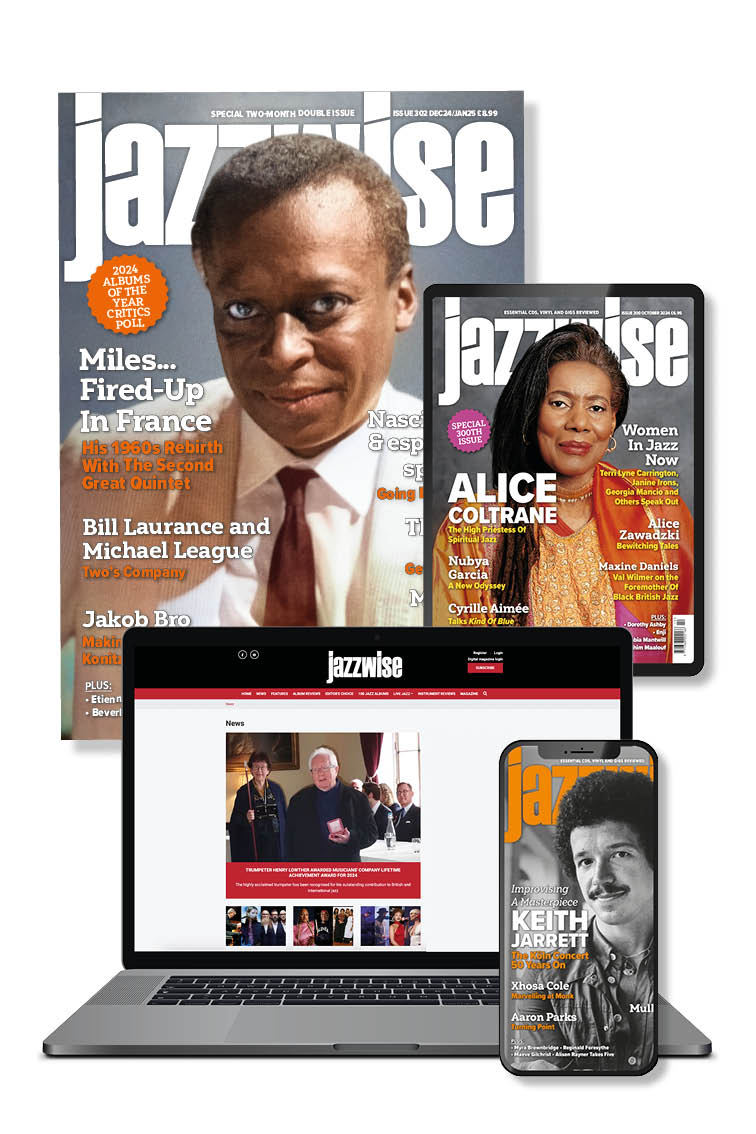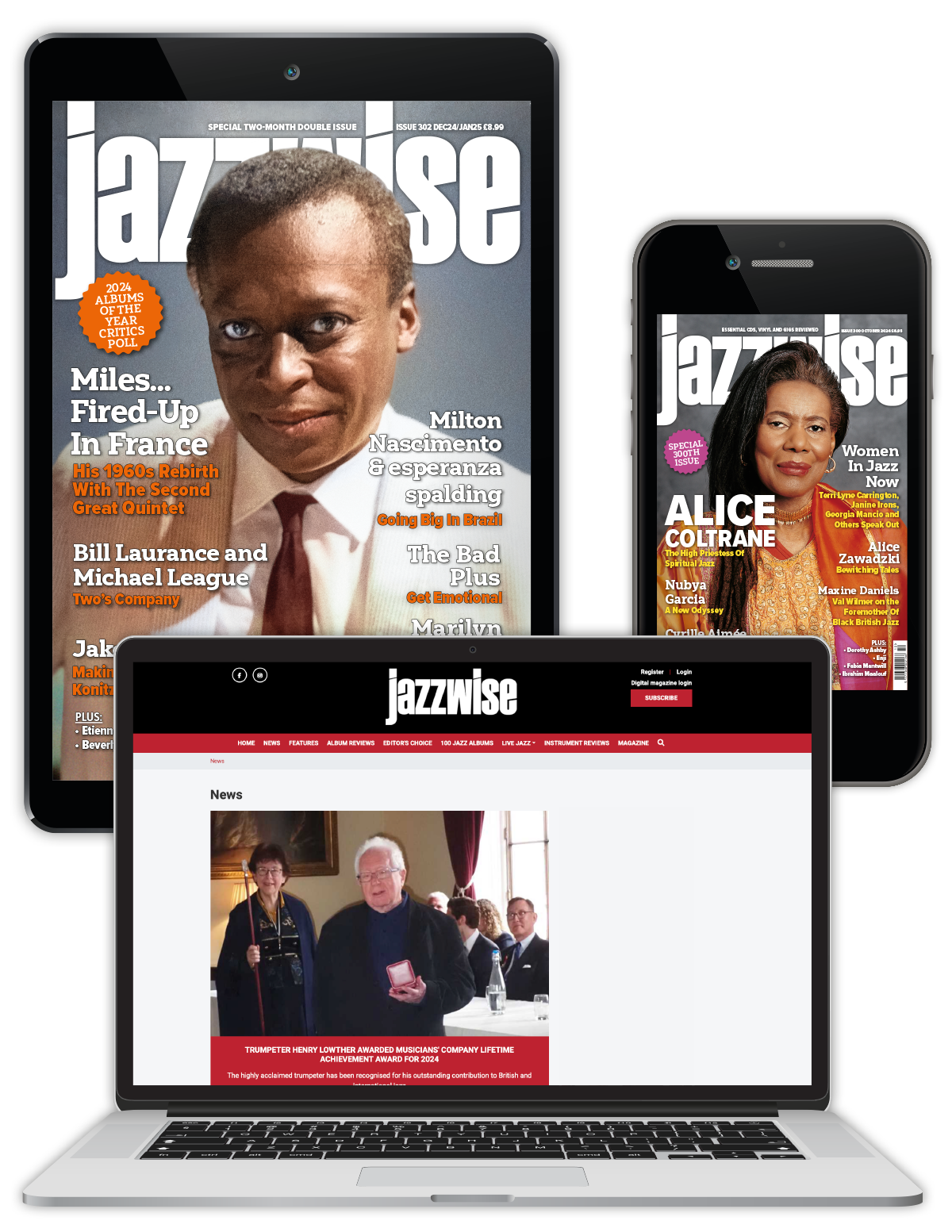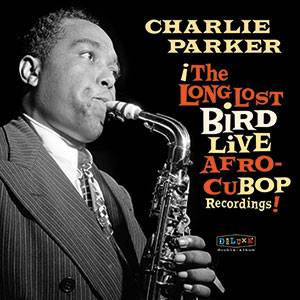Charlie Parker: The Long Lost Bird Afro-Cubop Recordings
Editor's Choice
Author: Stuart Nicholson
View record and artist detailsRecord and Artist Details
Musicians: |
Dizzy Gillespie (t) |
Label: |
Rockbeat Records |
Magazine Review Date: |
July/2023 |
Media Format: |
2 LP |
Catalogue Number: |
ROC 3460 |
RecordDate: |
Rec. 1947–54 |
The ‘Afro-Cubop’ moniker is derived from Norman Granz's idea to feature Parker with Machito and his Afro-Cuban Orchestra on December 20, 1948. ‘Mango Mangue’ was released as a single, and, according to contemporaneous DJ Symphony Sid, “caused a sensation,” so the term ‘Afro-Cubop’ was a no-brainer. However, this collection is by no means devoted to Afro-Cubop jazz, (long lost or otherwise), but is nonetheless an important release – paradoxically more for the non-Afro-Cubop recordings it pulls together. Many of these tracks have surfaced here and there on bootlegs over the years, and together they make for a very interesting compilation.
The liner notes are enthusiastic but couched in generalities, so considering the historical significance of these recordings, here is a guide to what is going on: The set opens with a Parker/Gillespie sextet recorded shortly after Parker's Savoy debut, when Dizzy took a bop sextet with Parker to Billy Berg's nightclub in Los Angeles in December 1945, an event now part of Parker folklore. They didn't go down well with the locals, most of whom had never heard bebop before. ’Dizzy Atmosphere’ is extracted from an Armed Forces Radio Service (AFRS) broadcast of 29 December 1945, taken from the original 16 inch transcription disc, Programme 162. It is of considerable historical interest as this band did not record commercially, and since it's a radio broadcast, solos last beyond the constraints of a 78 rpm record. Then follows another Gillespie/Parker collaboration, a quintet from a concert from 29 September, 1947 at Carnegie Hall, which is generally regarded as bop's coming of age. Featuring the Dizzy Gillespie Big Band, Ella Fitzgerald plus an “exclusive appearance of Charlie Parker” (who turned up late), the Gillespie/Parker quintet (with piano, bass and drums drawn from the big band) perform ’A Night In Tunisia,’ ‘Groovin’ High’ and ‘Confirmation.’ Again, a valuable documentation of an important moment in jazz history.
Side Two of the first LP is the real Cubop deal – ‘Lament for the Congo’ and ‘Mambo Fortunato’ with Parker live with Machito's Afro-Cuban Orchestra at the Renaissance Ballroom, NYC, on 18-19 May 1950. It's worth noting that elsewhere, in an interview with Symphony Sid on 1 January 1949, Parker said he “extremely” enjoyed working with Machito. Again, important historical stuff. Side Two concludes with an exuberant Parker quintet with Red Rodney (trumpet) live from Birdland on 20 December 1950 on ‘Salt Peanuts.’ Side Three comprises five tracks by the Woody Herman Third Herd with Parker sitting in as featured soloist, live from Kansas City on July 22, 1951. These tracks have been available on bootleg (
Side Four comprises six tracks featuring Parker and Dizzy Gillespie sitting-in with the Stan Kenton Orchestra at the Civic Auditorium Portland, Oregon on 25 February, 1954. These tunes, except ‘A Short One,’ were previously available on the two LP set
The liner notes say Candido is added “on track 11,” but there is no track 11,;‘Manteca’ is the track Candido appears on and that's track five. However, the music, once you know what you're getting, is an important documentation of Parker's genius, which flowers with abundance on these tracks (which vary in sound quality, dependent as they are on the source recordings from over 70 years ago).

Jazzwise Full Club
- Latest print and digital issues
- Digital archive since 1997
- Download tracks from bonus compilation albums throughout the year
- Reviews Database access
From £9.08 / month
Subscribe
Jazzwise Digital Club
- Latest digital issues
- Digital archive since 1997
- Download tracks from bonus compilation albums during the year
- Reviews Database access

